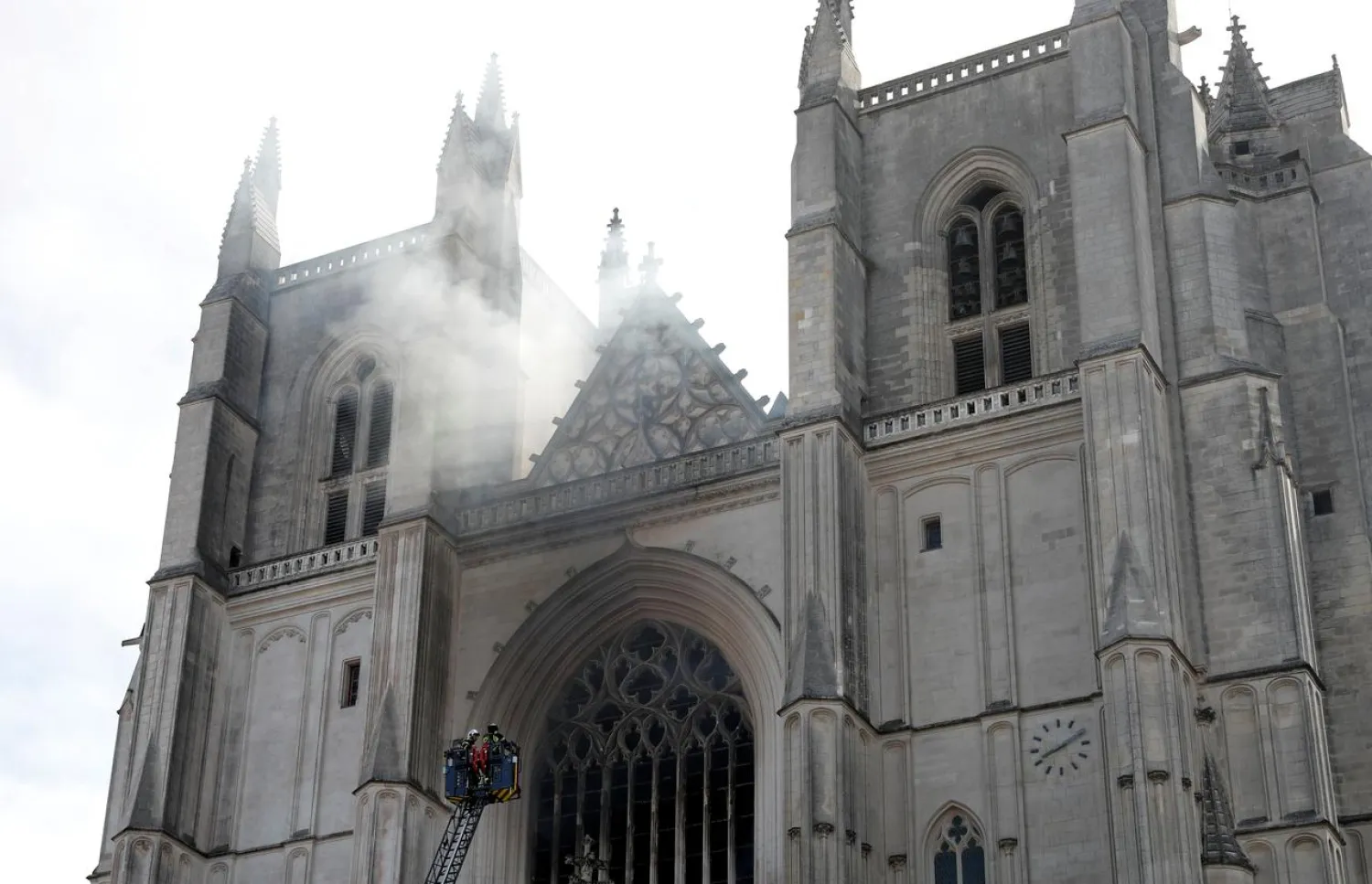French investigators on Sunday released a man who worked as a volunteer at the gothic cathedral of Nantes which was badly damaged by fire hours after he closed it up for the night.
Prosecutors launched an arson investigation after the Saturday morning blaze which they said appeared to have broken out in three different parts of the Cathedral of St. Peter and St. Paul in Nantes, western France.
The questioning on Sunday had sought to "clarify elements of the schedule" of the volunteer, who had been in charge of closing up the cathedral on Friday evening, Nantes prosecutor Pierre Sennes told AFP.
He had held as part of "normal procedure" and it would have been "premature" to suggest the man was a suspect in the case, the prosecutor said earlier.
Later Sunday, however, Sennes confirmed that the man had been released "without charge".
Before his release, Quentin Chabert, a lawyer for the volunteer, told reporters that for the moment "there is nothing that directly links my client to the fire".
The cathedral's rector, Hubert Champenois, said the man was a Rwandan asylum-seeker in France for several years.
The man volunteered as an altar server and would have been the last to leave the cathedral on Friday, he said.
Champenois said he had known the 39-year-old for four or five years, adding: "I trust him like I trust all the helpers".
The blaze, which came just 15 months after a devastating fire tore through the Notre-Dame cathedral in Paris, destroyed the Nantes congregation's famed organ, which dated from 1621 and had survived the French revolution and World War II bombardment.
Also lost were priceless artifacts and paintings, including a work by 19th century artist Hippolyte Flandrin and stained glass windows which contained remnants of 16th century glass.
About 100 firefighters managed to save the main structure of the cathedral, which was constructed over more than 450 years starting in 1434.
Sennes said experts from a police unit specialized in fire investigations were at the scene Sunday, awaiting authorization from firefighters to examine the platform which had held the grand organ.









